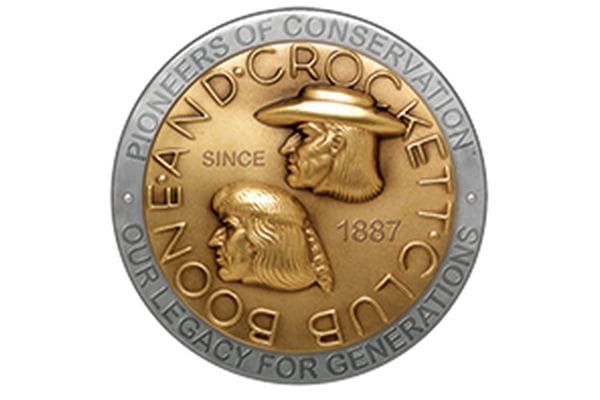Boone and Crockett Club Welcomes Introduction of Bipartisan Chronic Wasting Disease Research and Management Act in Senate

The Boone and Crockett Club thanks Senators Martin Heinrich and John Hoeven for introducing legislation to authorize federal funding to address chronic wasting disease (CWD) more holistically. The CWD Research and Management Act introduced today is a companion bill to H.R. 5608 that passed the U.S. House of Representatives with an overwhelming vote of 393-33 in early December last year. The bill authorizes $35 million each to research and management efforts and requires 75% of the management funding be directed to state and tribal wildlife agencies. If enacted, the bill will lay the groundwork to provide additional resources to states and tribes to proactively address CWD outbreaks and to manage this always-fatal disease of deer, elk, and moose.
“Chronic wasting disease is a major and growing threat to many of our country’s native big game species, already presenting significant challenges to maintaining the health of these ecologically important wildlife species,” said James F. Arnold, president of the Boone and Crockett Club. “We appreciate the continued leadership of Senators Heinrich and Hoeven for their efforts to find solutions to this growing issue. The legislation that they introduced today will provide critical new funding to state wildlife agencies that are on the front lines battling CWD.”
Chronic wasting disease is a highly contagious neurological disease affecting cervids (members of the deer family) that has been found in wild or captive herds in 30 states and four Canadian provinces to date. The disease is known as a transmissible spongiform encephalopathy (TSE) and is caused by a naturally occurring protein, called a prion, that is misfolded. When prions are introduced into a healthy cervid, they multiply through existing, natural processes of protein replication and begin damaging the animal’s nervous system. It may take as long as two years before the animal begins to show outward signs of the disease. CWD can be transmitted through direct physical contact, contact with saliva, feces, or carcass parts of an infected animal, and can even spread through soil that has been contaminated with infected tissues or fluids. There is no known cure for CWD, it is not treatable, and it is ultimately always fatal.
The CWD Research and Management Act will authorize funds to states to help manage existing CWD outbreaks and to provide rapid response funding for detections in new populations. In addition, the bill would provide increased funding for research to improve testing and disease containment mechanisms, including the development of live animal or environmental testing and ways to decontaminate infectious prions. Another important provision directs the Secretary of Agriculture to review the Herd Certification Program standards including those that help minimize or eliminate the interaction between wild and captive deer.
“State fish and wildlife agencies have been working hard to prevent the introduction of CWD into new areas and to limit its spread, however CWD management is expensive—the Chronic Wasting Disease Research and Management Act will help states manage and mitigate outbreaks of the disease,” Arnold concluded.
About the Boone and Crockett Club
Founded by Theodore Roosevelt in 1887, the Boone and Crockett Club promotes guardianship and visionary management of big game and associated wildlife in North America. The Club maintains the highest standards of fair chase sportsmanship and habitat stewardship. Member accomplishments include enlarging and protecting Yellowstone and establishing Glacier and Denali national parks, founding the U.S. Forest Service, National Park Service and National Wildlife Refuge System, fostering the Pittman-Robertson and Lacey Acts, creating the Federal Duck Stamp program, and developing the cornerstones of modern game laws. The Boone and Crockett Club is headquartered in Missoula, Montana. For details, visit www.boone-crockett.org.
